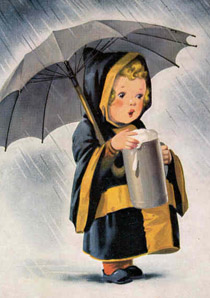Truth is sometimes I turn these lists into a post so I have the links saved for more careful reading later.
Curling strategy. This chart will make wagering easier the deeper into a match you watch.
Truth is sometimes I turn these lists into a post so I have the links saved for more careful reading later.
Curling strategy. This chart will make wagering easier the deeper into a match you watch.
Robin Goldstein, already adept at raising a ruckus in the wine world, has turned his attention to beer.
The Amazon.com description of The Beer Trials, due in April, promises: “With brutally honest ratings and reviews of the 250 most popular beers in the world – both in bottle and on draft – The Beer Trials will challenge some of our most basic assumptions about beer.
“Do you think draft beers and bottled beers of the same brand taste similar? Do more expensive beers taste better? Are imports better than domestic beers? Each beer gets a full-page review, with a down-to-earth description and a photograph of the bottle for easy identification in the store.”
So who is this guy?
Well, for one thing he pulled off a hoax that embarrassed the Wine Spectator. Then he co-authored The Wine Trials, which compares everyday wines to more expensive equivalents in blind tastings and finds wine consumers like inexpensive wines better. Plenty was written about the first edition of the book — here’s a nicely balanced take.
The 2010 edition is out and Joe Roberts at 1 Wine Dude interviews Goldstein and gives it a glowing review.
I found the first 50 pages (which describe the approach and science behind the book, and hint at its future implications on the wine industry) to be some of the most profound reading on wine appreciation that I have ever come across. The Wine Trials doesn’t just poke at wine’s sacred cows – it skewers them, grills them, and serves them up with an inexpensive Spanish red (Lan Rioja Crianza in this case, which took the Wine of the Year honors in the 2010 Wine Trials).
Goldstein provides little information about The Beer Trials beyond the Amazon description, only that it “will take a different approach than The Wine Trials, but one that I hope will be equally useful to readers.”
He did reply to my email and promised more details as the publication dates nears. I’ll keep you posted.
 I was going to write about brewers as rock stars today but will save that for Monday (something to think about over the weekend, Alan) because there are so many business related stories worth considering.
I was going to write about brewers as rock stars today but will save that for Monday (something to think about over the weekend, Alan) because there are so many business related stories worth considering.
Start by wandering over to the Zythophile and check out a couple of posts about words for beer (here’s the second).
It seems to me we need to give reporters who write about the business of beer some other words to use. When said reporters throw a net over Budweiser, Sierra Nevada Pale Ale, Corona, Duvel and the pint you should be drinking tonight at your local brewpub and call them all beer they miss important cultural shifts.
The decision isn’t a matter of thinking “should I drink an import or a non-import?” As Stephen Beaumont pointed out it is boire moins, boire mieux (drink less, drink better).
And, “They don’t see wine as elitist or unattainable but believe it denotes maturity and sophistication not given by beer or spirits.”
So are they “trading up” from Coors Light to Yellow Tail? Or from Samuel Adams Utopias? That’s just not clear.
This is not a “craft beer don’t get no respect” rant. Instead I’m bothered that these business stories leave important questions unanswered. It starts with the vocabulary.
Of course you have to sign up as a fan to see the commercials.
Keith Levy, Anheuser-Busch’s vice president for marketing, says the company’s initial decision to not run the horse ad was not a publicity stunt.
But don’t you wonder?
British beer writer of the year Pete Brown is giving away the trip to Ceske Budejovice, where Budvar is brewed, he won last month. He’s been twice and figures the trip would not give him as much value as it could someone else.
Working in conjunction with Budvar UK and The Publican, we’re launching a mini-competition to encourage new beer writing talent.
This is open to anyone who is passionate about beer, wants to write about it, but has not yet had anything published in print media. We can’t and don’t want to exclude bloggers because most people who are keen to write about beer have started doing so electronically, but we want to offer someone the chance to break into being published offline for the first time.
It’s simple. You need to write a thousand-word piece on the subject of ‘Why Beer Matters’, interpreted in whatever way you see fit. You need to send this to me at petebrown@stormlantern.co.uk by 29th January, remembering to include your real name, postal address and contact telephone number.
“5. Beer Is Not the New Wine: But wine might just be the new beer!”
Think about it, he writes. Please do.
Drastic changes, no apologies.
The St. Louis Post-Dispatch has an in-depth look at Anheuser-Busch InBev one year later.
Scientists discover that mormons like beer.
Just go read it. It’ll make you smile.
Best after.
Deschutes Brewery founder Gary Fish talks about why the brewery decided to put a “best after” date on beers in its reserve series, like The Abyss.
Why wine ratings are badly flawed.
Mostly stuff already reported but the Wall Street Journal put it on top of the first page of the print version of its weekend edition and it will be news to a lot of people.